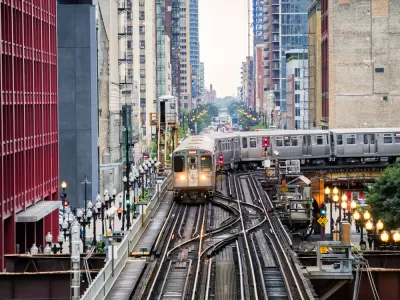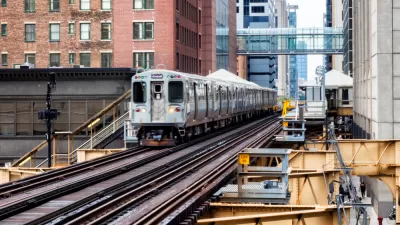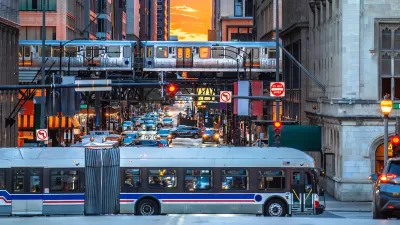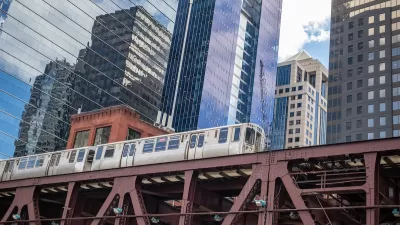Illinois transit agencies want to see changes to a law requiring them to collect half of their revenue from transit fares, arguing that low ridership and staffing shortages will lead to a massive budget gap without intervention.

The Regional Transportation Authority (RTA) in Illinois is calling on state lawmakers to change a law that requires half of the agency’s revenue to come from transit fares, citing continued low ridership after the pandemic, when emergency exemptions kept the agency afloat. Writing in Crain’s Chicago Business, Andrew Adams explains that “Last month, RTA's board approved a strategic plan that includes seeking increased funding overall to the system and developing a new model that is less reliant on fares.”
Members of the state Senate Transportation Committee said they would likely support assisting the RTS and Chicago Transit Authority (CTA), which it oversees, but expressed interest in addressing “certain reforms and issues, like safety and accessibility, that need to be addressed.”
“Beyond the long-term inequities in access, the CTA has also faced criticism from lawmakers and advocates about increased wait times for services and ‘ghost busses,’ a term to describe when a bus is scheduled to come but never does,” problems the CTA attributes to a worker shortage.
The challenges aren’t unique to the Chicago area. “Transit systems in Bloomington-Normal, Peoria, Rockford, Springfield, Champaign-Urbana, Decatur, Kankakee and DeKalb have all faced decreased ridership since the pandemic began.” According to Adams, “As of December, the combined number of trips being taken on these systems is down to 69 percent of what it was at the same time in 2019, according to data from the Federal Transit Administration.”
FULL STORY: Chicago transit looks to the state to help make up $730 million budget gap

Maui's Vacation Rental Debate Turns Ugly
Verbal attacks, misinformation campaigns and fistfights plague a high-stakes debate to convert thousands of vacation rentals into long-term housing.

Planetizen Federal Action Tracker
A weekly monitor of how Trump’s orders and actions are impacting planners and planning in America.

San Francisco Suspends Traffic Calming Amidst Record Deaths
Citing “a challenging fiscal landscape,” the city will cease the program on the heels of 42 traffic deaths, including 24 pedestrians.

Half of Post-Fire Altadena Home Sales Were to Corporations
Large investors are quietly buying up dozens of properties in Altadena, California, where a devastating wildfire destroyed more than 6,000 homes in January.

Opinion: What San Francisco’s Proposed ‘Family Zoning’ Could Really Mean
Mayor Lurie is using ‘family zoning’ to encourage denser development and upzoning — but could the concept actually foster community and more human-scale public spaces?

Jacksonville Launches First Autonomous Transit Shuttle in US
A fleet of 14 fully autonomous vehicles will serve a 3.5-mile downtown Jacksonville route with 12 stops.
Urban Design for Planners 1: Software Tools
This six-course series explores essential urban design concepts using open source software and equips planners with the tools they need to participate fully in the urban design process.
Planning for Universal Design
Learn the tools for implementing Universal Design in planning regulations.
Gallatin County Department of Planning & Community Development
Heyer Gruel & Associates PA
JM Goldson LLC
City of Camden Redevelopment Agency
City of Astoria
Transportation Research & Education Center (TREC) at Portland State University
Jefferson Parish Government
Camden Redevelopment Agency
City of Claremont





























